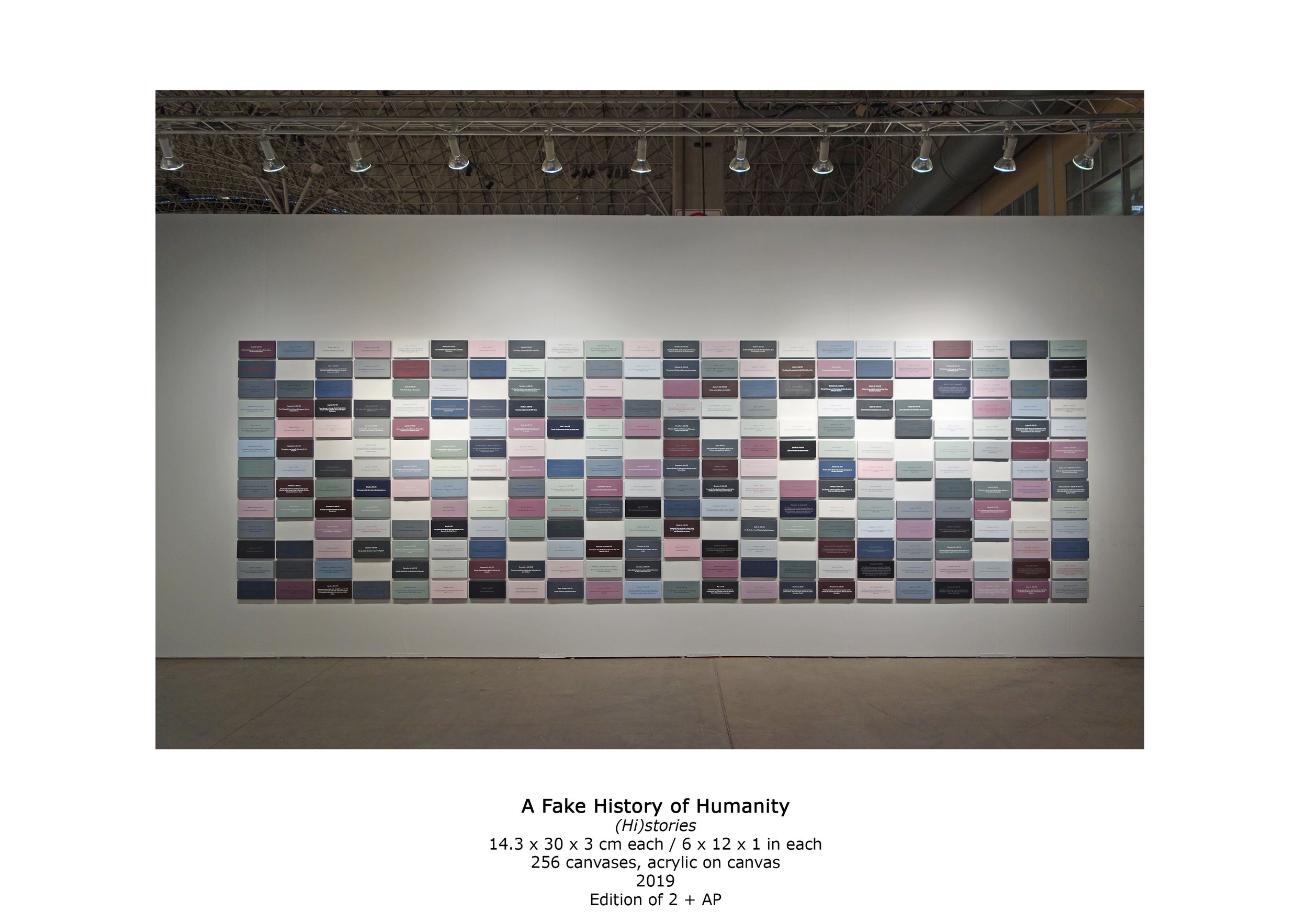September 2024
Octavio Abundez
Film directed by Juancy Matos for Fountainhead Arts
At the core of Octavio Abundez’s multidisciplinary, experimental approach to art is a fascination with profound philosophical queries. “I’ve always been interested in existential questions and art seemed like a good way to answer them while having fun,” the Guadalajara-based artist says. “Who am I? Who are you? Where do you come from? What makes your identity? Are some of the questions I seek to explore. And there's also this questioning of society. Are we doing things the right way? Should we look for better options?”
Octavio’s work spans numerous mediums, including painting, sculpture, and installation, frequently incorporating language as a foundational element. In one series, he composes texts and quotes from a wide array of cultural sources into vibrant, grid-like patterns that invite viewers to consider his internal dialogue and explore their own interpretations. This fusion of words and colors is both visually captivating and conceptually profound, encouraging a closer look at the underlying messages.
Another distinct series, centered on the intellectual and material complexity of crumpled paper, grew from an unintentional moment in 2008. After making a mistake that led to crumpling a piece of paper, Octavio became fascinated by its unique form, sparking an ongoing exploration. Through meticulously detailed oil-on-canvas paintings, entitled Mala Idea (bad idea) he reimagines this simple object in works that strike a unique balance between figuration and abstraction. The highly intricate painting process, which the artist likens to a profound meditation, results in enthralling pieces that evoke themes of error and forgiveness.
During his residency at Fountainhead, Abundez devoted significant time to this contemplative series, viewing it as an intensely inward-looking period. “Fountainhead was almost like a spiritual retreat,” he says. “And I think this residency is going to be a turning point for me, in the quirkiness of the works and the time I spend developing them. It was very introspective in that way.”
Words by Salomé Gómez-Upegui







